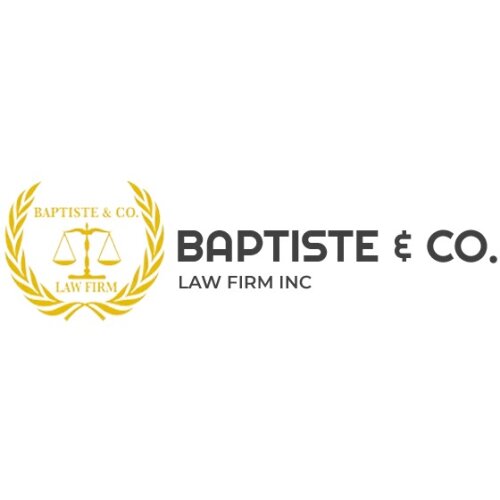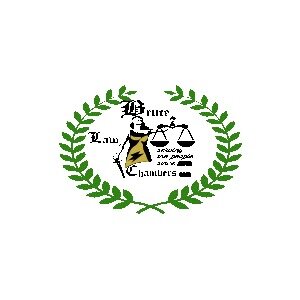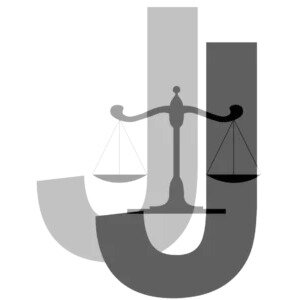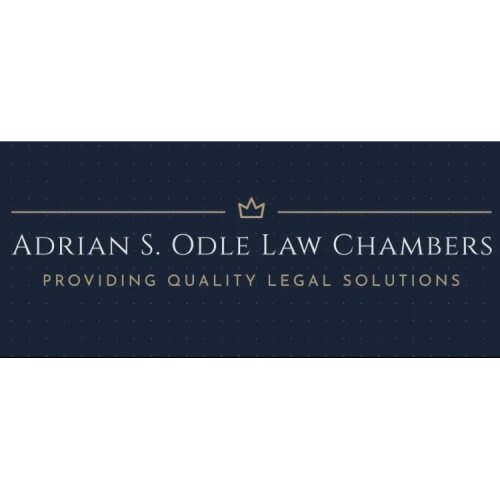Best Real Estate Lawyers in Saint Vincent and the Grenadines
Share your needs with us, get contacted by law firms.
Free. Takes 2 min.
Free Guide to Hiring a Real Estate Lawyer
Or refine your search by selecting a city:
List of the best lawyers in Saint Vincent and the Grenadines
About Real Estate Law in Saint Vincent and the Grenadines
Real Estate in Saint Vincent and the Grenadines is governed by a combination of statutory law and common law principles. The legal framework includes laws related to property ownership, transfers, leases, and mortgages. It is important to understand these laws to protect your rights and interests when engaging in real estate transactions in the country.
Why You May Need a Lawyer
It is advisable to seek legal advice from a qualified real estate lawyer in Saint Vincent and the Grenadines in the following situations:
- Buying or selling property
- Entering into a lease agreement
- Resolving property disputes
- Seeking mortgage or financing for a real estate transaction
Local Laws Overview
Key aspects of real estate laws in Saint Vincent and the Grenadines include:
- The Registration of Documents Act
- The Land Adjudication Act
- The Land Acquisition Act
- The Land Surveyors Act
Frequently Asked Questions
1. How can I verify the ownership of a property in Saint Vincent and the Grenadines?
Verification of property ownership can be done through a search at the Land Registry Office in Kingstown.
2. Do I need a lawyer for a real estate transaction in Saint Vincent and the Grenadines?
While it is not a legal requirement to have a lawyer, it is highly recommended to seek legal advice to protect your interests.
3. What are the taxes involved in real estate transactions in Saint Vincent and the Grenadines?
Taxes such as stamp duty and property transfer tax are typically payable in real estate transactions in the country.
4. Can a non-national own property in Saint Vincent and the Grenadines?
Yes, non-nationals can own property in Saint Vincent and the Grenadines, but there may be restrictions on certain types of land.
5. What are my rights as a tenant in Saint Vincent and the Grenadines?
Tenants have rights protected under the landlord and tenant laws of the country, including the right to peaceful enjoyment and the right to fair rent.
6. How can I resolve a property dispute in Saint Vincent and the Grenadines?
Property disputes can be resolved through negotiation, mediation, or by seeking legal recourse through the courts.
7. What is the process for obtaining a mortgage in Saint Vincent and the Grenadines?
The process for obtaining a mortgage involves applying to a financial institution, providing necessary documentation, and meeting the lender's requirements.
8. How can I ensure that a property title is clear and free of any encumbrances?
A title search can be conducted at the Land Registry Office to verify the status of the property title and uncover any encumbrances.
9. Are there any restrictions on land use in Saint Vincent and the Grenadines?
There may be restrictions on land use based on zoning regulations and environmental protection laws in the country.
10. How can I protect my real estate investment in Saint Vincent and the Grenadines?
You can protect your investment by seeking legal advice, conducting due diligence, and ensuring all legal requirements are met in your real estate transactions.
Additional Resources
For further information and assistance with real estate matters in Saint Vincent and the Grenadines, you can contact the Land Registry Office, the Bar Association of Saint Vincent and the Grenadines, or seek guidance from a qualified real estate lawyer.
Next Steps
If you require legal assistance or advice in real estate matters in Saint Vincent and the Grenadines, it is recommended to consult with a reputable real estate lawyer who is familiar with the laws and regulations in the country. A lawyer can guide you through the legal process, protect your interests, and ensure a smooth real estate transaction.
Lawzana helps you find the best lawyers and law firms in Saint Vincent and the Grenadines through a curated and pre-screened list of qualified legal professionals. Our platform offers rankings and detailed profiles of attorneys and law firms, allowing you to compare based on practice areas, including Real Estate, experience, and client feedback.
Each profile includes a description of the firm's areas of practice, client reviews, team members and partners, year of establishment, spoken languages, office locations, contact information, social media presence, and any published articles or resources. Most firms on our platform speak English and are experienced in both local and international legal matters.
Get a quote from top-rated law firms in Saint Vincent and the Grenadines — quickly, securely, and without unnecessary hassle.
Disclaimer:
The information provided on this page is for general informational purposes only and does not constitute legal advice. While we strive to ensure the accuracy and relevance of the content, legal information may change over time, and interpretations of the law can vary. You should always consult with a qualified legal professional for advice specific to your situation.
We disclaim all liability for actions taken or not taken based on the content of this page. If you believe any information is incorrect or outdated, please contact us, and we will review and update it where appropriate.
Browse real estate law firms by service in Saint Vincent and the Grenadines
Saint Vincent and the Grenadines Attorneys in related practice areas.
Browse real estate law firms by city in Saint Vincent and the Grenadines
Refine your search by selecting a city.












